Peugeot’s e-Expert sees the French firm apply its EV know-how to one of its most popular vans, but is it any good? Our man Jon Reay has been driving it to find out.
Here’s what he had to say…
What is it?
As you might have noticed, the take-up of electric cars has been ever-increasing over the last few years, with more and more manufacturers bringing their models to market.
If you’re a van driver though, your options have been a bit limited to one or two options with (in some cases) laughably small battery range and painfully slow charging options.
Enter Peugeot. The e-Expert – as the name suggests – is the fully electric version of the medium-sized Expert van, and as it borrows its battery technology from Peugeot’s impressive electric car range, the French firm might just be on to a winner.
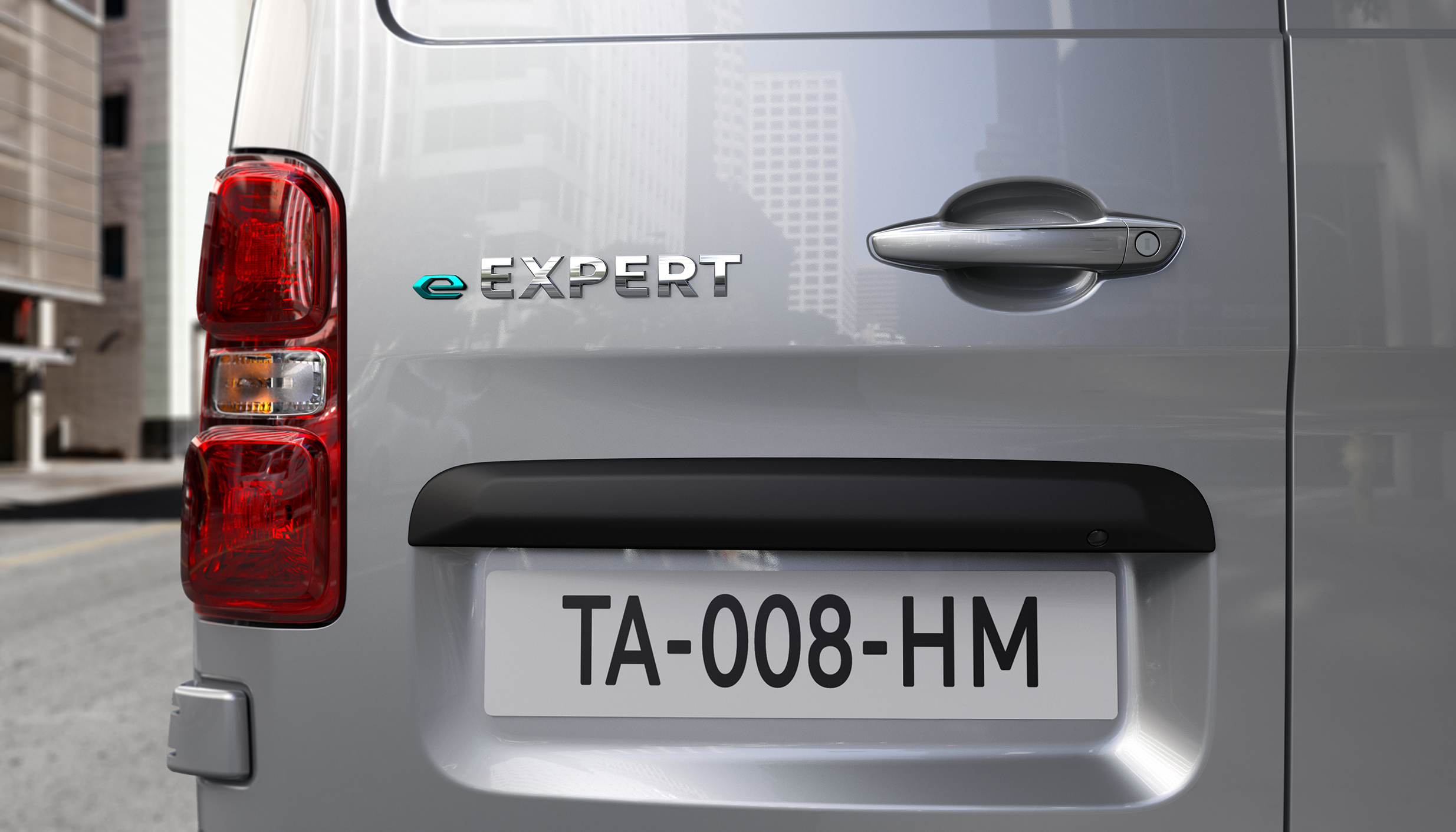
What’s new?
From the outside, you’ll be hard-pressed to spot the difference between the e-Expert and its diesel-powered twins. There’s an extra flap on the front wing that hides a CCS charging port – curiously the fuel filler flap remains at the back, but has been sealed shut – and a subtle ‘e’ badge on the back.
The biggest change is, of course, the choice of a 50 or 75kWh battery that’s been hidden under the floor.
Cleverly, Peugeot has managed to slip it in without any changes to the Expert’s load bay – so in terms of dimensions at least, you’ll manage to fit just as much into an electric Expert as a diesel-powered one.
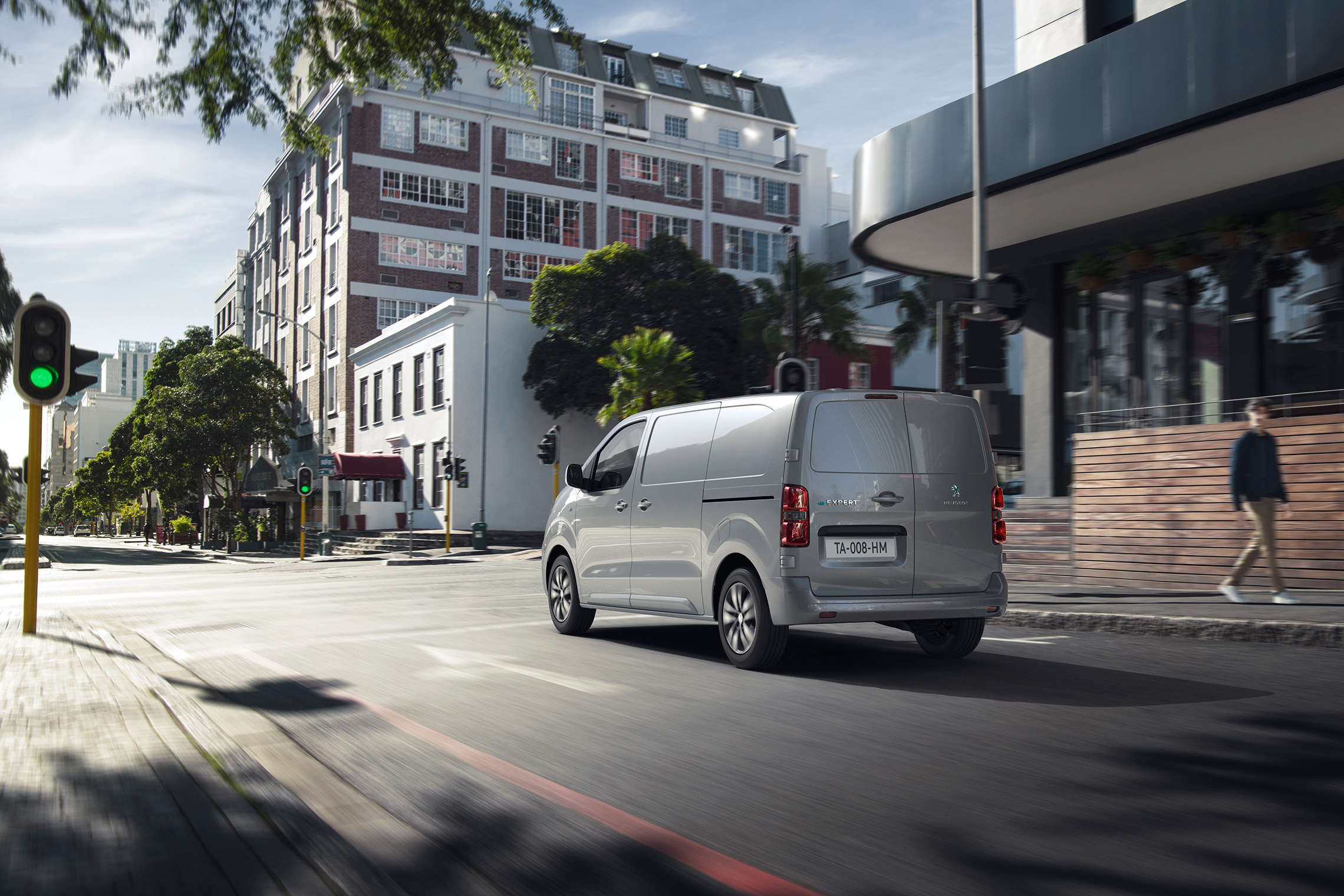
What’s under the bonnet?
There’s just one choice of electric motor – in this case, one borrowed from the e-208 hatchback.
That may not sound like the most promising of starts for a five-metre long brick-shaped van, but with 134bhp – and more crucially, 260Nm of torque – it’s plenty powerful enough, even relatively quick by van standards.
What really sets the e-Expert apart from its (relatively small) selection of rivals is the battery technology on board.
Pick the larger 75kWh battery and your Expert will travel as far as 211 miles between charges – much, much further than any other fully-electric van on sale.
Whichever battery you choose, the e-Expert supports 100kW charging too – meaning a 0 – 80% top up in 45 minutes for the 75kWh battery, and 30 minutes for the 50kWh option.
Put together, this makes the e-Expert a genuine option for longer distance travel – certainly not something you can say of rivals like the Volkswagen ABT e-Transporter, or Mercedes eVito.
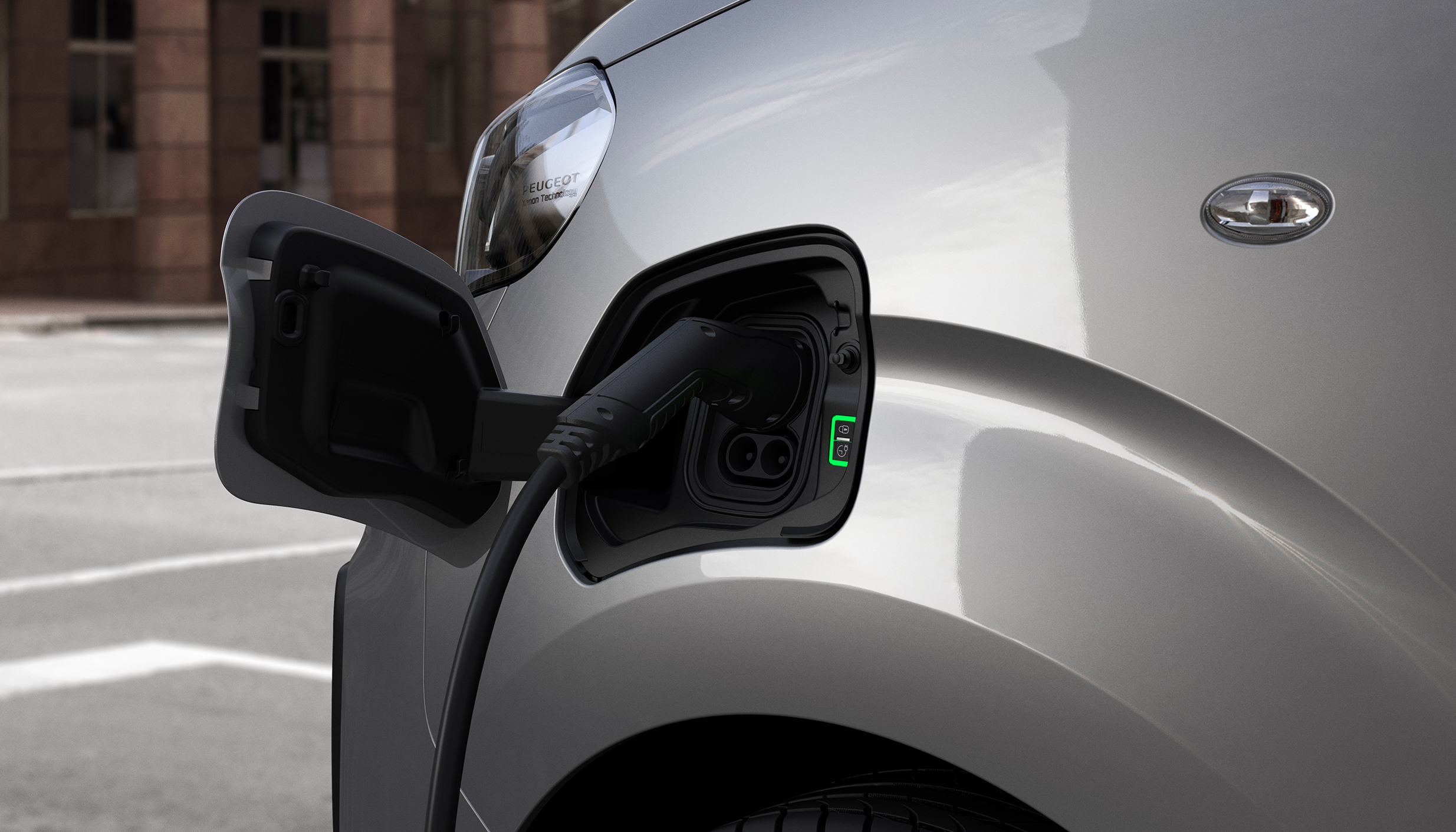
What’s it like to drive?
Unsurprisingly, the e-Expert drives pretty much like its conventional diesel-powered equivalent – albeit much quieter.
Around town, it’s virtually silent, with none of the gruff engine bay vibrations you’d expect of a normal van – and the instantly-available power and torque make light work of pulling out from junctions.
The e-Expert isn’t bad at motorway speeds either – able to hold its own on steep 70mph inclines, even laden with (in our test’s case) a load bay full of laminate flooring.
The inevitable whine from the single-speed gearbox can get a little wearisome at higher speeds, but it’s certainly no worse than the rumble of a four-cylinder diesel.
As vans go, ride quality isn’t bad either, and thanks to the low centre of gravity (i.e, a few hundred kilos of battery under the load bay) it doesn’t pitch and roll as much as you might expect.
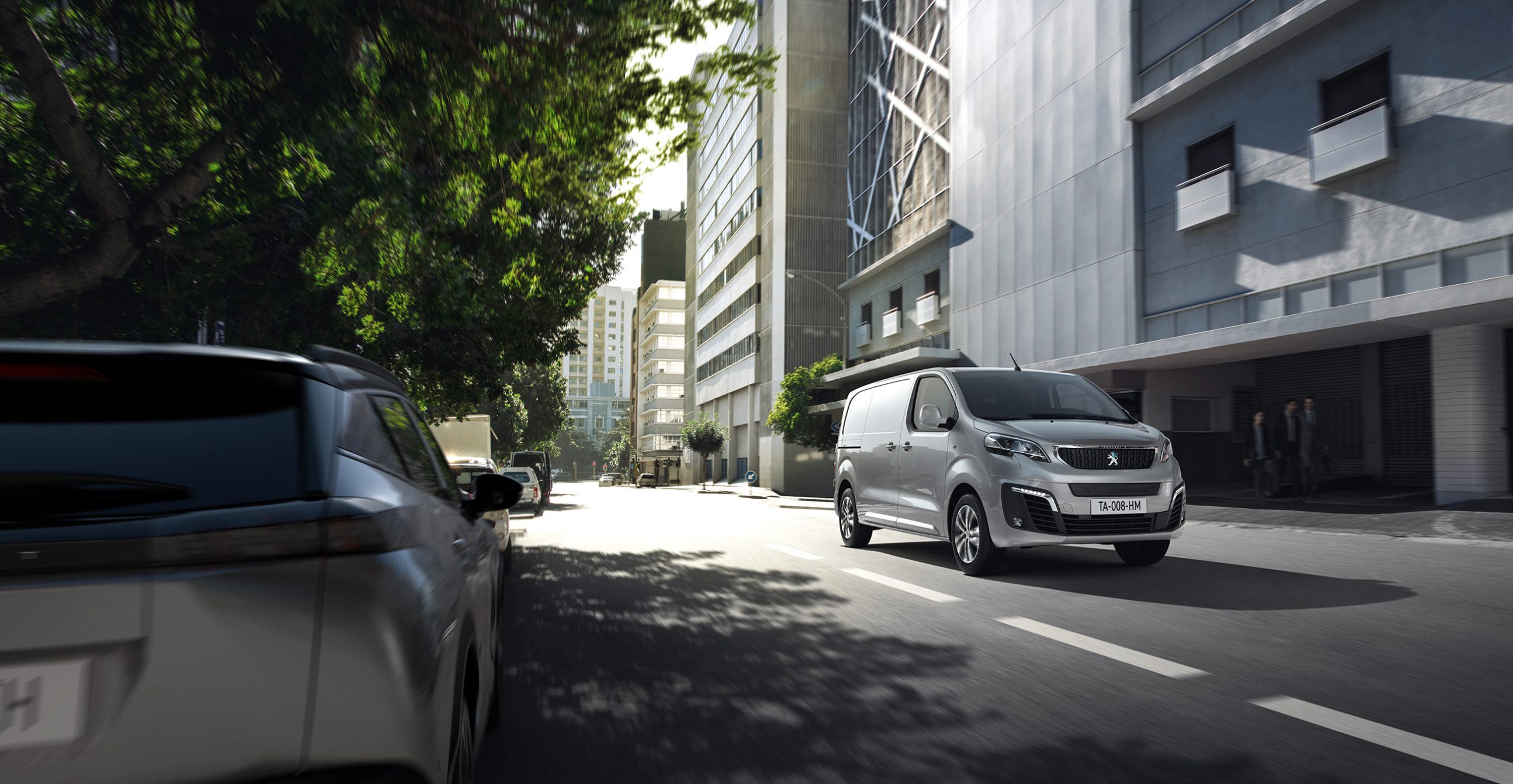
How does it look?
Styling is barely relevant when it comes to vans, but the Expert does at least have some pretty neat design touches – with pleasantly sculpted wheel arches and doors, and Peugeot’s usual corporate face grafted onto the front.
Top-spec Asphalt models get body-coloured bumpers and attractive 17-inch alloy wheels too, letting the Expert do a reasonable impression of a plush airport transfer minibus rather than a builder’s van.
To my eyes, the Citroen e-Dispatch – its near-identical twin, along with the Vauxhall Vivaro-e – is a smidge better looking, but who’s counting?
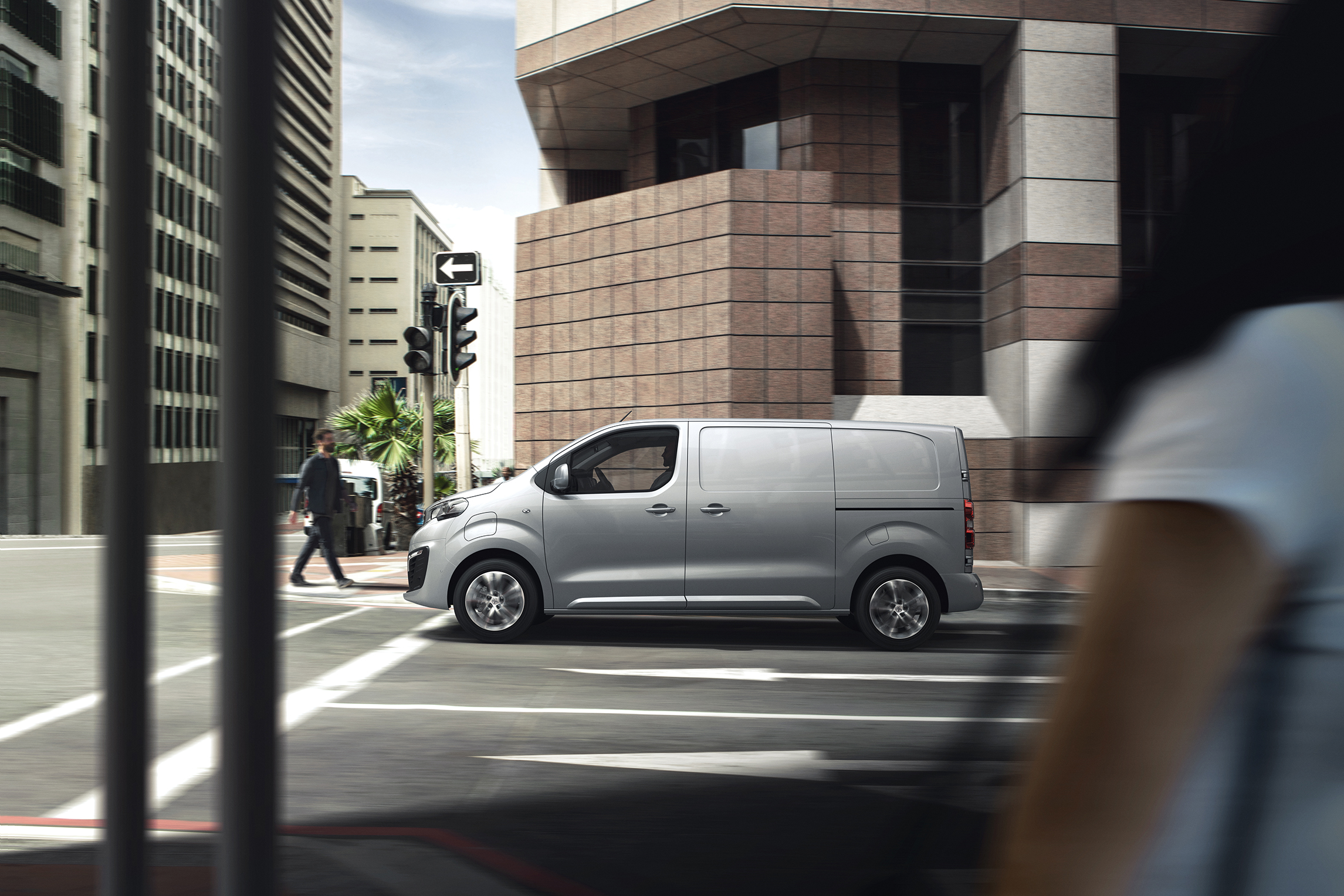
What’s it like inside?
As vans go, the Expert’s interior is probably one of the best in terms of layout and design.
There’s the usual unforgiving hard plastics on every surface – do van drivers not deserve a nice cushioned armrest on the door? – but otherwise it’s logically laid out and well put together.
There are storage bins on top of the dash, cavernous door pockets split into two sections, and a couple of other spaces dotted around for pens and other assorted items – so you’re unlikely to want for space for odds and ends up front.
As usual in vans of this size, you get three-abreast seating – though anyone in the middle ‘jump’ seat will have to negotiate their legs around the protruding mount for the transmission and drive mode selectors.
In the back, meanwhile, you’ll find a load bay a bit smaller than usual offerings in this class. Our ‘standard’ length e-Expert gets 5.3 cubic metres of load space: putting it somewhere between the Nissan NV200 and smallest Ford Transit Custom.
Thanks to the heavy battery under the floor, weighty loads aren’t the e-Expert’s forte – but a 1000kg maximum payload compares favourably with the entry-level diesel’s 975kg.
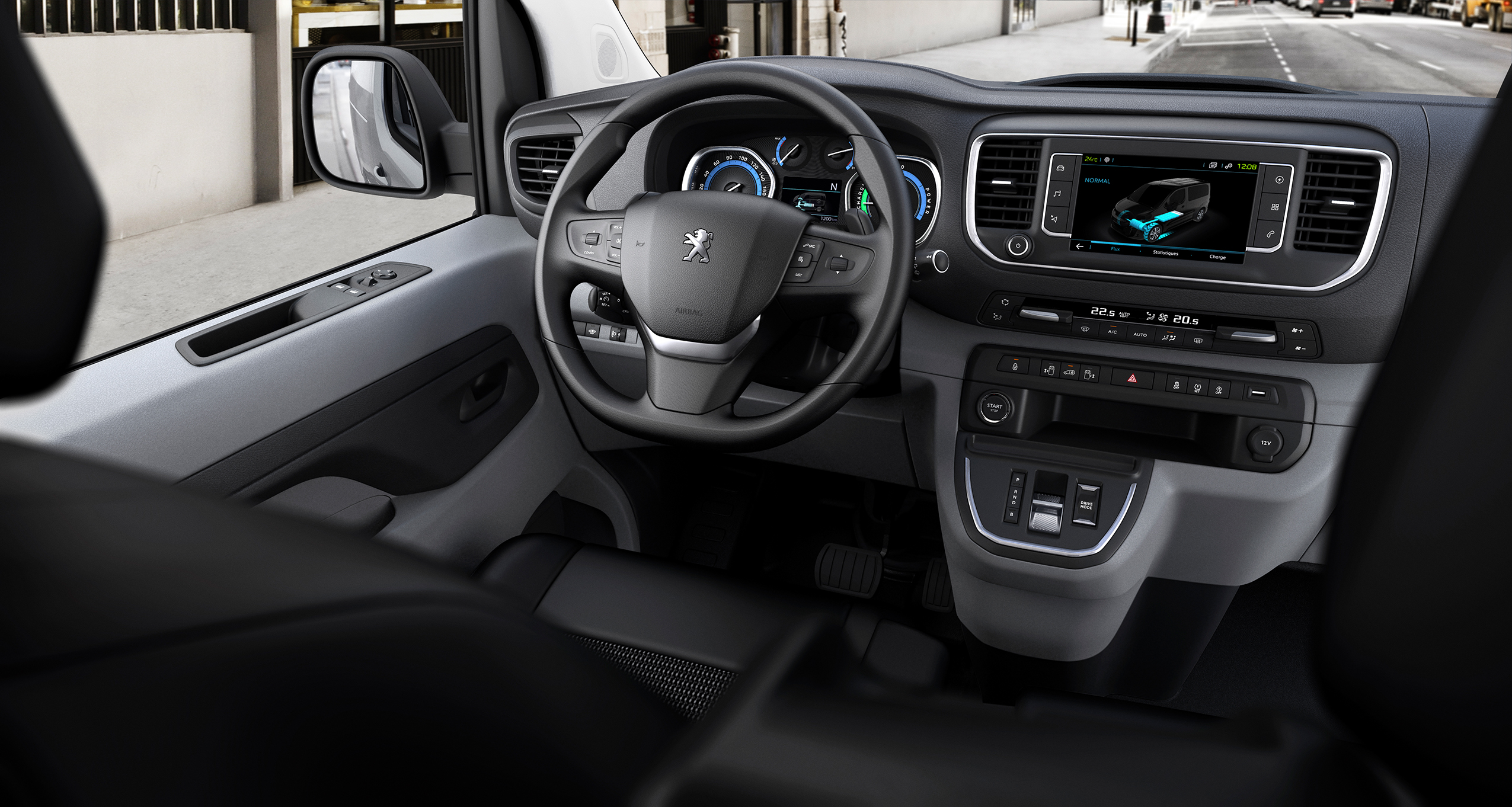
What’s the spec like?
In top-spec Asphalt trim, the e-Expert is absolutely brimmed with standard equipment – sat nav, a head up display, forward emergency braking and collision alert, and a rearview camera to name but a few.
Even mid-range Professional trim gets a 7-inch touch screen with Apple CarPlay and Android Auto compatibility, rear parking sensors, and a handy load-through flap under the passenger seat for transporting particularly long items.
All e-Experts get air conditioning, an electronic handbrake, electric windows, twin sliding rear doors, and manual cruise control.
Our van had optional electric sliding rear doors with keyless entry and start – a pricey option at just over £1,125, but excellent for showing off in the Wickes car park.
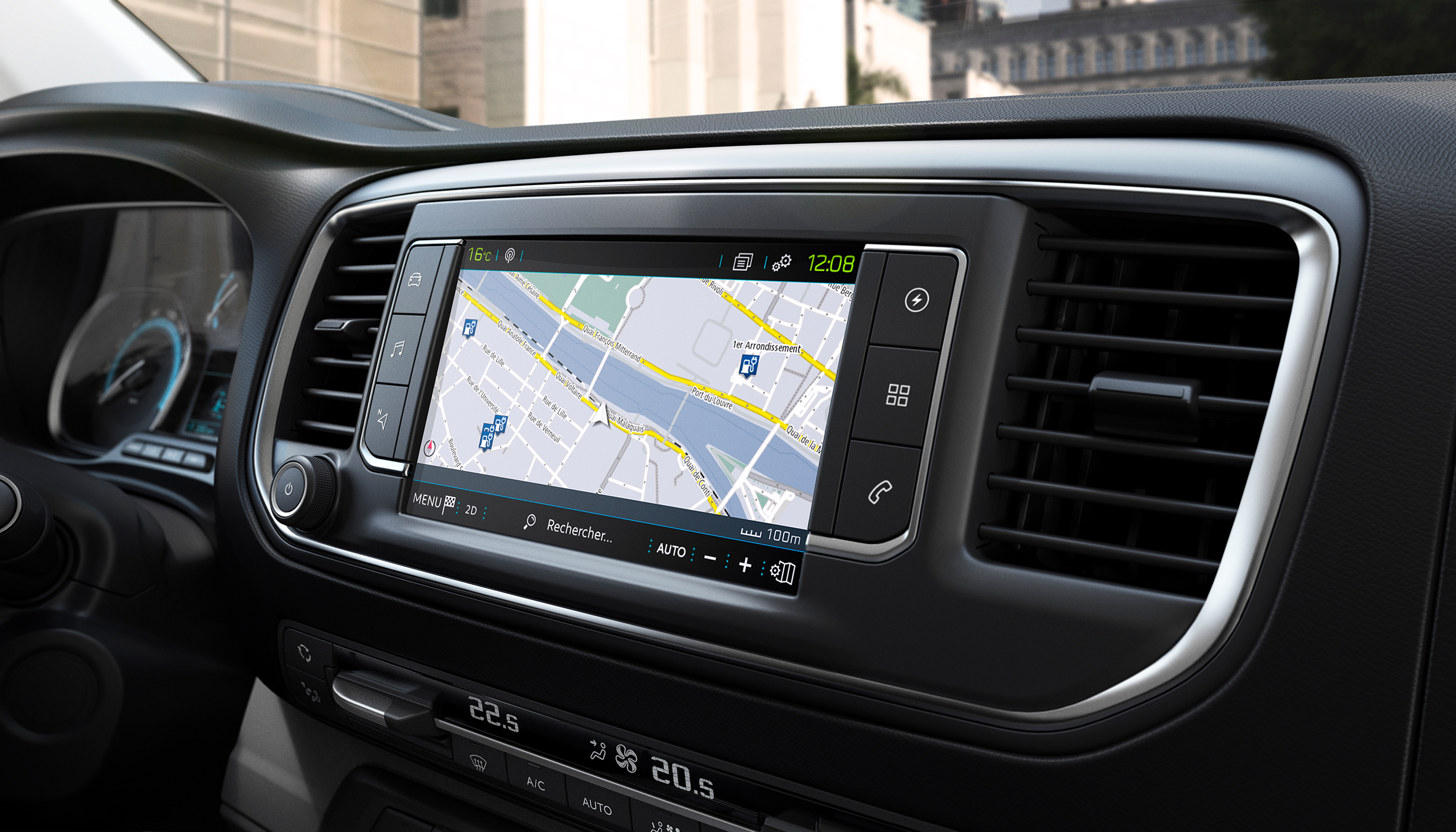
Verdict
There’s lots to recommend about the e-Expert – it’s a solid choice for a medium-sized van regardless of what’s under the bonnet, but Peugeot has pulled a blinder with the battery technology on offer.
No other electric van can travel as far on a single charge, nor can one recharge at anywhere near the same speed. As a result, it’s perhaps the only electric van that can be comfortably used beyond the reaches of a city centre.
A £33,000 (ex VAT) list price might seem a bit steep, but next to the similarly-sized, £42,000 Volkswagen ABT e-Transporter, the Peugeot looks like something of a bargain.
Put simply, the Peugeot e-Expert is the best electric van can you can buy today – and for most users, more than capable of replacing a conventional diesel model.

































